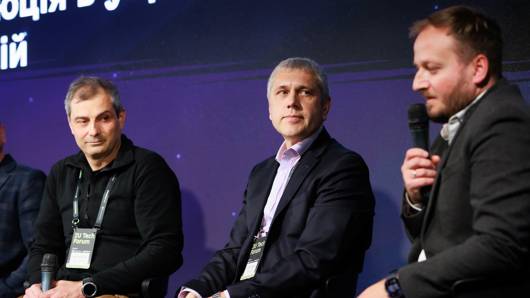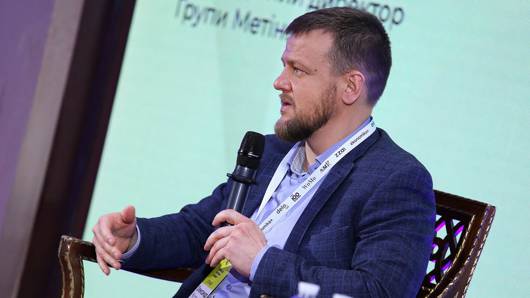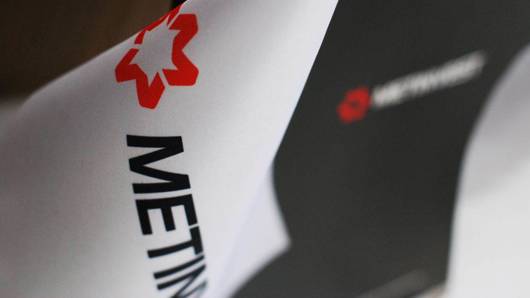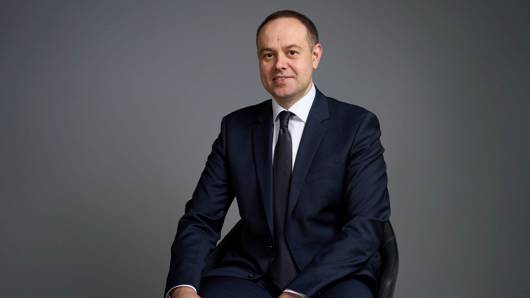Angelina Chachuna, Compliance Officer of Metinvest Group, explained why Ukraine and the EU need a final import ban on Russian iron ore raw materials and steel semi-finished products to the EU during the "Business vs Sanctions" conference in Kyiv.
The event brought together over 18 speakers, including representatives of state authorities, the judiciary, business, analytical centres, and the public sector. At the conference, participants discussed how to improve Ukraine's sanction policy, in particular through changes in legislation, criminalisation of violations, and damage compensation mechanisms using sanctioned assets. The "Legal Practice" publishing house organised the event.
Angelina Chachuna took part in the "Sanctions Policy" panel. Representatives of the Ministry of Justice of Ukraine, the Ukrainian National Office of Intellectual Property and Innovations, the NGO "Council for Economic Security of Ukraine," and legal companies, including ETORUM, VB PARTNERS, BARRISTERS and Benchers Law Firm, joined the discussion.
According to the Compliance Officer of Metinvest Group, despite existing limitations on steel imports from Russia, EU countries purchased Russian steel products worth EUR 2.9 billion in 2023, and EUR 2.6 billion in 2024.
"Iron ore mining and steel production represent the second most important sector in Russia's economy in terms of GDP contribution and budget revenues. Therefore, Europe continues to fund Russia's budget, which the aggressor country uses to enhance its military capabilities," said Angelina CHACHUNA.
In addition, over three years of full-scale war, Europe has spent over EUR 5 billion on purchasing Russian slabs ‒ semi-finished products for steel production. Belgium (42% of volumes), Italy, Denmark, the Czech Republic, and France are the biggest importers. The main customers are enterprises that belong to large metallurgical groups from Russia and have production facilities in these countries.
"Sanctions on Russian steel slabs are in force, but they include a transition period, so there are still opportunities to purchase them. The general EU directive does not prohibit this ‒ this is a matter of the internal position of individual countries or businesses," explained Angelina Chachuna.
According to her words, the price of Russian steel slabs is on average EUR 80 lower than prices from other suppliers due to access to cheap gas, electricity, and labour. At the same time, some European countries have completely stopped purchasing semi-finished products from Russia altogether in favour of more expensive alternatives ‒ from the EU, Turkey, and China. Thus, by allowing Russian slabs onto their market, Europe creates uneven conditions for companies that do not use these products as a matter of principle.
Such a situation has already harmed European steelmakers and will have more serious consequences in the future. The EU plans to switch to green metallurgy by 2030, which requires billions in investments for enterprise modernisation. Companies that fail to do so will be forced to pay high surcharges, making their products uncompetitive even on their own market.
"Under such conditions, access to the market for cheap Russian slabs undermines incentives for the transition to ecological production and threatens the implementation of EU climate goals," said Angelina Chachuna.
In the opinion of the Chief Compliance Officer of Metinvest Group, it is necessary to impose final restrictions on imports of Russian iron ore raw materials and steel semi-finished products to the EU.
"We all understand that existing sanctions are not enough. The transition period for importing Russian slabs should be shortened, and before the final ban, additional tariffs should be imposed on all Russian steel products. At the same time, imports of other metallurgical products from the aggressor country should be restricted, which would significantly impact war financing," emphasised Angelina Chachuna.
She also noted that over three years of the full-scale invasion, the rhetoric of European companies regarding leaving the Russian market has changed.
"Initially, European companies announced the closing of their businesses in Russia, then spent a year in the process of leaving the market. This year, however, they are implementing everything that the EU directive does not directly prohibit. Ukrainian business has found itself under pressure from American, European, and internal sanctions, which limit its rights and prospects in the EU. Without support from the state and dialogue with European institutions, these initiatives will remain merely theoretical," concluded Angelina Chachuna.










